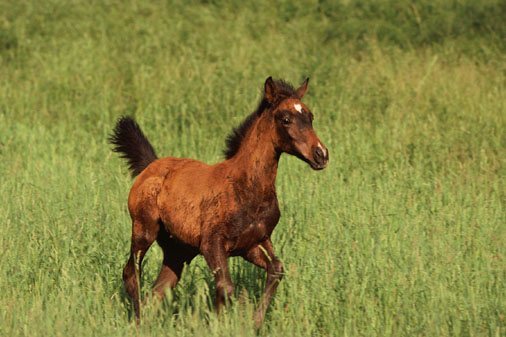Horse Worming Advice
Share

 Most horse owners are aware of the need to worm their horses on a regular basis. Although a horse is able to tolerate a small amount of worms without any problems, a large number of worms can lead to weight loss and diarrhea and therefore it is important to use horse wormers.
Most horse owners are aware of the need to worm their horses on a regular basis. Although a horse is able to tolerate a small amount of worms without any problems, a large number of worms can lead to weight loss and diarrhea and therefore it is important to use horse wormers.
Most of the worms that affect horses have a similar life cycle in that the horse swallows the worm larvae from the pasture, the larvae then spend time developing in the horse, before reaching adulthood in the bowel.
It has been shown that most owners use a horse wormer frequently enough to prevent a significant infection developing.
There are three commonly used classes of horse wormers, these are macrocyclic lactones, such as Eqvalan and Equimax; pyrantel embonate such as Strongid P Paste, and benzimidacoles such as Panacur.
Horse wormers should be used routinely, with set intervals between each dose. It is important to ensure that the correct dose is used, in particular to make sure that you do not under dose. It is also important to make certain that the class of drug is rotated on a yearly basis so that the worms do not grow resistant to the wormer being used.
[note style=”5″ icon=”yes” class=”template-style”]This is a sponsored post. We received compensation in the form of payment or product for this post, however, PetsWeekly never shares anything that we do not deem relevant to our readers.[/note]A typical strategy would be to treat for cysthastome larvae using a horse wormer such as Panacur, and once you have chosen your class of wormer for the rest of year, dose at regular intervals.
If you own a dog or cat, it may be that they also suffer from worms. Dogs and cats can pick up worms from playing in a horses stall or coming into direct contact with feces. For this reason, it is important to keep pets on a regular worming treatment. If infected, consider using Hill’s prescription pet food diet to ensure that symptoms are dealt with quickly, and to avoid any long-term health issues.
At Nutrecare, the qualified advisors are able to offer impartial advice as to which are the best dog, cat and horse wormers to use and they will also be able to advise you about an after care plans, which may include products from the extensive range of prescription diets from Hill’s pet food.









